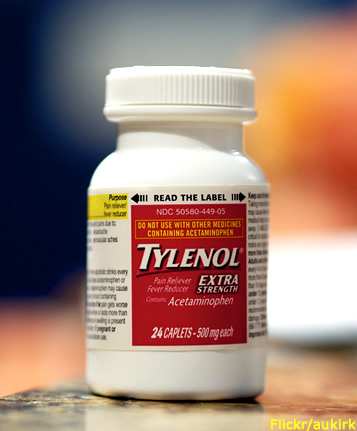In 2012, the star performer among sectors was the financial sector. In 2013, it was consumer discretionary stocks. For 2014, which sector can we expect to top the list?
I looked at the 20 highest-earning asset managers and their common holdings, position sizes, and latest portfolio moves. After screening over 27,000 declared positions, a common theme for 2014 emerged: invest in dividend-yielding health care stocks. (My colleague Joseph Hogue profiled his favorite side play in this space earlier this week.)
More specifically, investors such as Warren Buffett, Ken Fisher, and Donald Yacktman have gone big on Big Pharma. Three stocks in particular each found a home in nearly half or more of the portfolios I scoured.
What could be the main driver for such heavy investment into pharmaceutical stocks going into the end of last year? The answer is simple: the Affordable Care Act.
With the deadline to register being well-advertised over the past year, money managers were ahead of the curve and stocked up on drugmakers. For good reason too, as the government exceeded its enrollment goal of 7 million subscribers, with the latest numbers closer to 7.5 million.
So how does this translate into cash for Big Pharma (and ultimately these savvy mega-investors)? In short, the insured pool has grown larger, meaning increased subsidies and a larger consumer base purchasing prescription medications. The newly insured will help to prop up health care spending in 2014, with expected year-over-year growth of 5%, according to the federal Centers for Medicare & Medicaid Services.
Additional profits to the tune of $10 billion to $35 billion over the next decade are expected, even despite some ACA-mandated rebates and taxes that will likely negatively affect drugmakers.
So what are the three stocks with the widest ownership among the portfolios I analyzed?
| Johnson & Johnson (NYSE: JNJ) |
 Johnson & Johnson (NYSE: JNJ) topped the list in terms of popularity among billionaire hedge fund managers. Of the 20 surveyed, 12 gurus laid claim to holding a position in JNJ at the end of last year. Bridgewater Associates, the largest hedge fund in the world, more than tripled its stake between last year's third and fourth quarters. Other notable investors include the legendary Jim Simons of Renaissance Technologies, whose 5.5 million shares were worth more than half a billion dollars at the end of last year. Since then, the stock has tacked on another 8% in gains, thanks to foreign expansion and the divestment of its Ortho-Clinical Diagnostics business to a private equity firm in a deal valued at $4.15 billion. Augmenting the stock's gain is a respectable dividend yield of 2.7%. Johnson & Johnson (NYSE: JNJ) topped the list in terms of popularity among billionaire hedge fund managers. Of the 20 surveyed, 12 gurus laid claim to holding a position in JNJ at the end of last year. Bridgewater Associates, the largest hedge fund in the world, more than tripled its stake between last year's third and fourth quarters. Other notable investors include the legendary Jim Simons of Renaissance Technologies, whose 5.5 million shares were worth more than half a billion dollars at the end of last year. Since then, the stock has tacked on another 8% in gains, thanks to foreign expansion and the divestment of its Ortho-Clinical Diagnostics business to a private equity firm in a deal valued at $4.15 billion. Augmenting the stock's gain is a respectable dividend yield of 2.7%. |
| Pfizer (NYSE: PFE) |
 Pfizer (NYSE: PFE) saw support from nine out of the 20 funds surveyed, with the largest investment made by Ken Fisher of Fisher Asset Management. Assuming he has maintained his investment of 30.4 million shares up until the present, his $930 million investment has benefited from another 2% in gains and the stock's impressive 3.2% yield. Joining him is billionaire Ken Griffin of Citadel Advisors fame, who drastically increased his position from 90,000 shares in last year's third quarter to 6.8 million in the fourth. PFE's growth has been tepid compared with JNJ and BMY, possibly due to the expiring patents of cash-cow drugs like Lipitor and Enbrel. Pfizer (NYSE: PFE) saw support from nine out of the 20 funds surveyed, with the largest investment made by Ken Fisher of Fisher Asset Management. Assuming he has maintained his investment of 30.4 million shares up until the present, his $930 million investment has benefited from another 2% in gains and the stock's impressive 3.2% yield. Joining him is billionaire Ken Griffin of Citadel Advisors fame, who drastically increased his position from 90,000 shares in last year's third quarter to 6.8 million in the fourth. PFE's growth has been tepid compared with JNJ and BMY, possibly due to the expiring patents of cash-cow drugs like Lipitor and Enbrel. |
| Bristol-Myers Squibb (NYSE: BMY) |
 Bristol-Myers Squibb (NYSE: BMY) found a home in half of the funds I analyzed, bestowing those managers with a 2.9% dividend yield. Over the past 12 months, BMY outperformed both PFE and JNJ as well as the overall market, registering a gain of 22.5%. Unlike PFE and JNJ however, BMY is down in 2014 to the tune of nearly 5% despite the success of its new oral hepatitis C therapy in Phase III trials. A majority of managers reduced their stakes in BMY going into the end of last year, with Paul Tudor Jones and Steve Cohen both cutting their positions by more than half. Bristol-Myers Squibb (NYSE: BMY) found a home in half of the funds I analyzed, bestowing those managers with a 2.9% dividend yield. Over the past 12 months, BMY outperformed both PFE and JNJ as well as the overall market, registering a gain of 22.5%. Unlike PFE and JNJ however, BMY is down in 2014 to the tune of nearly 5% despite the success of its new oral hepatitis C therapy in Phase III trials. A majority of managers reduced their stakes in BMY going into the end of last year, with Paul Tudor Jones and Steve Cohen both cutting their positions by more than half. |
Risks to Consider: The future of the ACA and how it will impact each company individually (in both the short and long term) is still not clear, but initial estimates show a compelling argument in favor of owning some of these large players. Keep an eye out for expiring patents and potential regulations on a per-company basis, as they should always be a concern for those investing in drugmakers.
Action to Take --> Not only do these hedge funds see the upward potential in stock price, they are also benefiting from the impressive yields offered by these companies as well. These pharmaceuticals are packing a one-two punch of growth and income and could be a great addition to any portfolio going forward.



